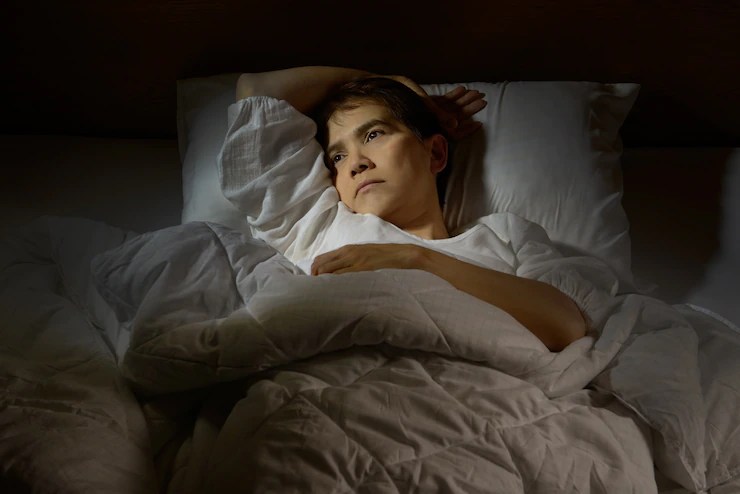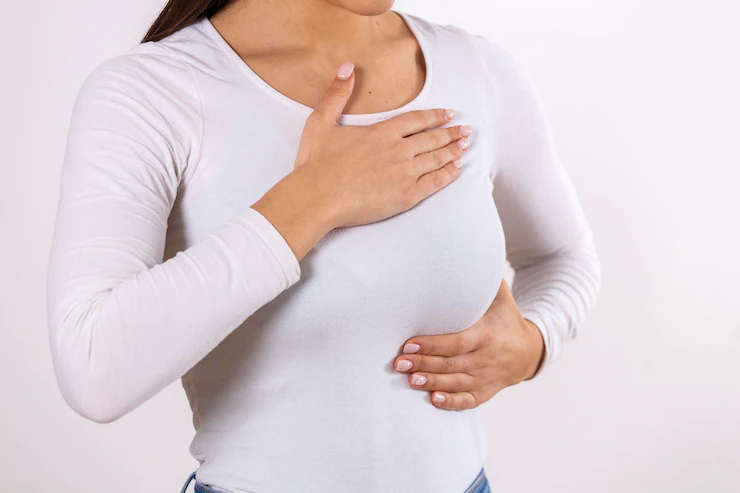Unusual Menopause Symptoms



Most women often have to endure a challenging time in their life during their mid-40s and 50s. A torrent of emotional and biological changes is common for this stage of life. Emotional circumstances like caring for your sick and ageing parents or if your children moving far from you can often negatively impact you as well at this time.
Menopause is inevitable, but we can never be sure of the exact timing of menopause for a particular person. Most women may have their menopause anywhere between the ages of 45 to 55 years, with 51 being the average age for menopause.
Menopause is defined as a period of twelve consecutive months during which a woman does not have her periods. Her ovaries have stopped releasing an egg and she does not have her period anymore.
Perimenopause is the term used to describe the period before menopause occurs. It can last for over a decade or even up to 14 years, during which a woman may have hormonal fluctuations that result in several biological changes. Most women start to experience several symptoms associated with menopause symptoms during this period. Taking a menopause blood test can help to assess your hormone levels and understand your symptoms better. It will also help to gauge the stage of your menopause.
Post-menopause is the period after menopause. It is characterized by low levels of estrogen hormone in your body. You may also be more prone to heart and bone-related disorders after menopause.
The biological changes associated with menopause bring a wide range of symptoms along with it. Although menopausal symptoms may not be the same for all women, some of the common symptoms include:
Headaches
Hot flushes
Breast tenderness
Joint and Muscle pain
Weight gain
Itchy skin
Brain fog
Increased UTI and vaginal infections
Vaginal dryness
Mood swings
Irregular Periods
While some of the symptoms are common and most women complain of them, some peculiar and unusual symptoms are associated with menopause. They include:

Sleep-related problems during menopause significantly affect a woman’s mental and physical health. Night sweats can often disturb your sleep patterns and you may wake up drenched in sweat in the middle of the night. This is also accompanied by declining levels of oestrogen and progesterone in the body, the two hormones responsible for helping you fall asleep and maintain deep sleep. Reduced hormone levels during menopause can result in sleep problems ranging from insomnia to difficulty in getting deep sleep and even sleep apnoea.
An uncommon term, formication is a type of paraesthesia experienced by menopausal women. Derived from the Latin word for ant- ‘formicare’, formication is the weird and annoying sensation of insects crawling on your skin. Oestrogen in your body is responsible for maintaining collagen in your skin. It helps keep your skin hydrated and resilient. Fluctuating and ultimately declining oestrogen levels during the menopausal years may result in dry, itchy, and flaky skin that may result in the feeling of insects crawling on your skin.
Hot flushes are common during menopause and the perimenopausal period. However, some women also experience cold flushes apart from hot flashes. Abnormally fluctuating levels of hormones can interfere with the feedback mechanism of the hypothalamus. The hypothalamus is part of the brain and acts as a temperature regulator. The hypothalamus triggers cold flushes post the episodes of hot flushes to regulate your body temperature.

Although it may be obvious that the breasts lose their fullness as you age, sagging of the breasts is also a symptom associated with menopause. The fall in oestrogen levels results in a reduced fullness of the breasts. This can be accompanied by weight gain and increased fat deposition during menopause, which ultimately results in sagging breasts.
Menopause can cause various unusual symptoms related to your tongue and mouth. Dry mouth and thrush have been common complaints among middle-aged women. Some women may also experience what is called a burning mouth syndrome.
Burning mouth syndrome is experienced as a burning and sore sensation of the lips, palate, and tongue. You may also feel numbness or occasional tingling sensation, along with dryness. The sensation may either come and go or initially start with a mild burning sensation that gets intense during the day. Some types of food may also trigger the unusual sensations associated with BMS. A dry mouth and metallic taste in the mouth may also be felt during menopause. Hormonal imbalance, yeast infection, or both may be responsible for symptoms of BMS felt during menopause.
Quite a few women complain of hair fall and thinning of hair during their mid-40s and 50s. The oestrogen hormone plays a role in maintaining healthy follicles and hair. Although losing some strands of hair each day is natural, reduced oestrogen levels result in excessive hair fall. During menopause, you may find losing hair in tufts while brushing or running your fingers through your hair. The increase in testosterone hormone is known to affect hair growth and cause thinning of hair, along with increased facial hair growth.

Keratin is the protein that’s responsible for the optimal growth of hair and nails. An imbalance in keratin levels is known to affect the health of hair and nails. As reduced oestrogen levels during menopause affect the skin, it also affects the hair and nails, making them dehydrated. The nails become brittle and tend to break and chip off easily.
Several symptoms of menopause are generally managed by making a few changes in your lifestyle, diet, and sleeping habits.
Sleeping early and at the same time every day can help to reduce insomnia. It is vital to keep your room well-aerated and wear cool and comfortable clothes while sleeping.
You may also consider adding some much need vitamins such as magnesium, calcium, and vitamin D to your diet. They would help improve your sleep, rejuvenate your bones, and alleviate some of the pain and tenderness associated with menopause.
Consulting your primary care physician for your symptoms is always a great idea. The earlier treated, the better your health in the long run. Based on your specific symptoms, your doctor will prescribe the right medication and hormone therapy for you. In case of persisting and severe symptoms, your doctor may recommend hormone replacement therapy.
The transition phase of menopause is significant in a woman’s life. Taking small steps to reduce the ill effects caused by the symptoms associated with menopause can certainly help you through this journey.
Learn about how long menopause will last as well as other useful tips such as the best lubricant for menopausal dryness and the 9 best vitamins for menopause at Welzo.com!









Plus get the inside scoop on our latest content and updates in our monthly newsletter.